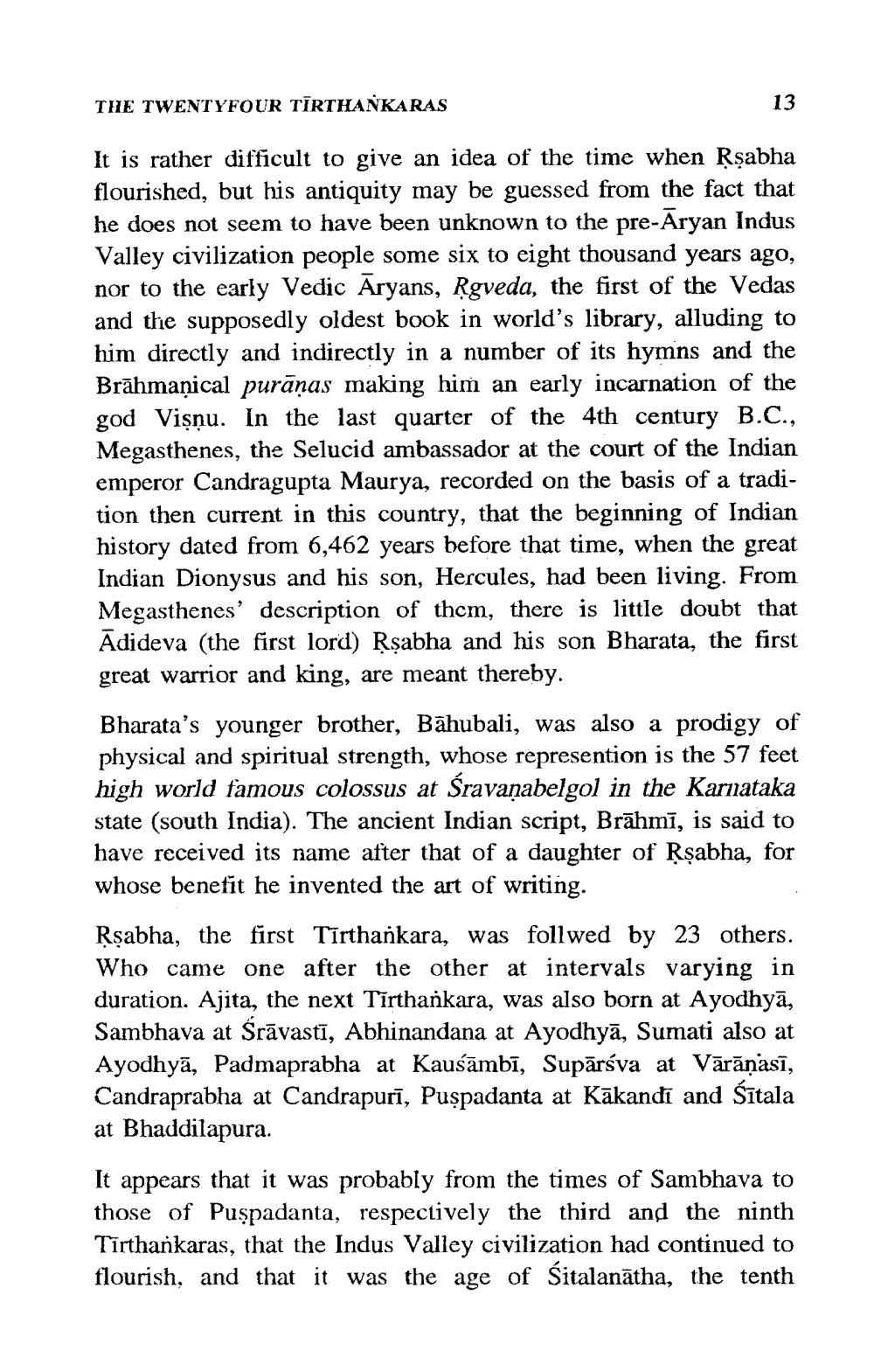________________
THE TWENTYFOUR TĪRTHANKARAS
13
It is rather difficult to give an idea of the time when Rşabha flourished, but his antiquity may be guessed from the fact that he does not seem to have been unknown to the pre-Aryan Indus Valley civilization people some six to eight thousand years ago, nor to the early Vedic Aryans, Rgveda, the first of the Vedas and the supposedly oldest book in world's library, alluding to him directly and indirectly in a number of its hymns and the Brāhmaṇical purāņas making him an early incarnation of the god Vişņu. In the last quarter of the 4th century B.C., Megasthenes, the Selucid ambassador at the court of the Indian emperor Candragupta Maurya, recorded on the basis of a tradition then current in this country, that the beginning of Indian history dated from 6,462 years before that time, when the great Indian Dionysus and his son, Hercules, had been living. From Megasthenes' description of them, there is little doubt that Adideva (the first lord) Rşabha and his son Bharata, the first great warrior and king, are meant thereby. Bharata's younger brother, Bāhubali, was also a prodigy of physical and spiritual strength, whose represention is the 57 feet high world famous colossus at Śravanabelgol in the Karnataka state (south India). The ancient Indian script, Brāhmī, is said to have received its name after that of a daughter of Rşabha, for whose benefit he invented the art of writing.
Rşabha, the first Tīrthankara, was follwed by 23 others. Who came one after the other at intervals varying in duration. Ajita, the next Tīrthankara, was also born at Ayodhyā, Sambhava at Srāvastī, Abhinandana at Ayodhyā, Sumati also at Ayodhyā, Padmaprabha at Kausāmbī, Supārsva at Vārāṇasī, Candraprabha at Candrapurī, Puşpadanta at Kākandi and Śītala at Bhaddilapura.
It appears that it was probably from the times of Sambhava to those of Puşpadanta, respectively the third and the ninth Tīrthankaras, that the Indus Valley civilization had continued to flourish, and that it was the age of Sitalanātha, the tenth




